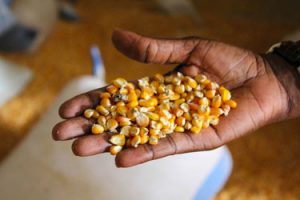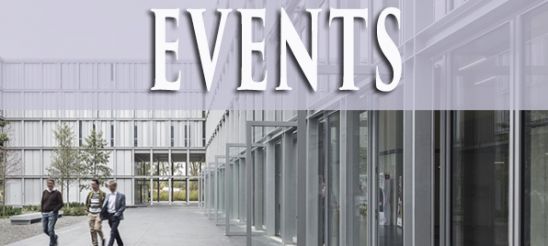Julien Combe invité de la Conférence en ligne Paris II Panthéon Assas – 29/03/2021
Webinaire “La finance à impact : effet de mode ou tendance de fond de la finance durable ?”
Online seminar with Patricia Crifo – March 25, 2021 – 3 hrs
Workshop on Political Economy
CREST – Ecole Polytechnique – ENSAE
April 4, 2019
Workshop on Political Economy
Organizers: Pierre Boyer, Yukio Koriyama, Alessandro Riboni and Clémence Tricaud
Address: CREST 5, avenue Henry Le Chatelier 91120 Palaiseau, How to come?
Rooms: 1002 & 1003 (first floor)
9:30 Welcome Coffee
10:00-10h45 Quoc Anh Do (Sciences Po): “Friendship Networks and Political Opinions: A Natural Experiment among Future French Politicians”, with Yann Algan, Nicolò Dalvit, and Yves Zenou
10:45-11h30 Ekaterina Zhuravskaya (PSE): “Diffusion of Gender Norms: Evidence from Stalin’s Ethnic Deportations”, with Alain Blum and Alexandra Jarotschkin
11:30-11:45 Coffee break
11:45-12h30 Clémence Tricaud (CREST): “Better Alone? Evidence on the costs of intermunicipal cooperation”
12:30-13h15 Marc Sangnier (AMSE): “Political connections and insider trading” with Thomas Bourveau and Renaud Coulomb
13:15-14:15 Lunch break
14:15-15:00 Benjamin Marx (Sciences Po): “Revolving Door MPs: Politician Turnover and Failed Accountability in Africa”
15:00-15h45 Yukio Koriyama (CREST): “The winner-take-all dilemma” with Kazuya Kikuchi
15:45-16:00 Coffee break
16:00-16:45 Allan Drazen (University of Maryland): “Reciprocity versus Reelection: Theory and Experiment”, with Prateik Dalmia and Erkut Ozbay
End of the Workshop
List of participants
Laurent Bach (ESSEC)
Guidogiorgio Bodrato (CREST)
Pierre Boyer (CREST)
Julia Cagé (Sciences Po)
Micael Castanheira (ECARES)
Gwen-Jiro Clochard (CREST)
Pierre-Edouard Collignon (CREST)
Sébastien Courtin (U Caen)
Allan Drazen (University of Maryland)
Quoc-Anh Do (Sciences Po)
Brice Fabre (PSE-IPP)
Germain Gauthier (CREST)
Jean-Michel Grandmont (CREST)
Daniel Hernández (CREST)
Helios Herrera (Warwick University)
Yukio Koriyama (CREST)
Quentin Lippmann (PSE)
Paul Maarek (U Panthéon Assas)
Benjamin Marx (Sciences Po)
Mickael Melki (Paris School of Business)
Matias Nunez (U Paris Dauphine)
Alessandro Riboni (CREST)
Marc Sangnier (AMSE)
Emilie Sartre (CREST)
Clémence Tricaud (CREST)
Alain Trognon (CREST)
Ekaterina Zhuravskaya (PSE)
You could download the program here.
A new building for CREST
All researchers, professors, students and administrative personnel working at CREST are so happy to announce that, starting June 26, we will be doing the exact same old jobs within our new building on the Saclay/Polytechnique Campus (http://crest.science/about#maps-and-directions) !
Jeremy Lise will be the first speaker for the first seminar taking place there, on June 29. Jeremy will present “Multidimensional Skills, Sorting, and Human Capital Accumulation”, jointly written with Fabien Postel-Vinay (who, by the way, was a former CREST researcher).
Among the many good news that accompany this incredible move, we take the opportunity to announce the arrival of our new assistant professors who will join us in September 2017:
- Roxana Fernandez (PhD, Tilburg) is working in empirical industrial organization, with a particular focus on the effect of entry on competition.
- Benoît Schmutz (PhD, Aix-Marseille) is working on urban and labor economics, with a special interest on the effect of spatial frictions.
We hope that Roxana and Benoît as well as all our visitors, will enjoy the CREST new environment!
Plus de marché pour plus d’Etat !
Ouvrage nominé pour le Grand prix Turgot 2017, du meilleur livre d’économie financière
 « Ma conviction profonde est que la puissance publique est encore fondée à intervenir, notamment pour protéger légitimement face aux risques ou aux attaques déloyales, pour réduire les inégalités, pour lutter contre les injustices. Pour accompagner le changement. Elle doit en revanche rénover ses modes et ses champs d’intervention. Francis Kramarz et Philippe Tibi dessinent dans cet ouvrage les lignes de crête de cette nouvelle gouvernance. » (extrait de la préface)
« Ma conviction profonde est que la puissance publique est encore fondée à intervenir, notamment pour protéger légitimement face aux risques ou aux attaques déloyales, pour réduire les inégalités, pour lutter contre les injustices. Pour accompagner le changement. Elle doit en revanche rénover ses modes et ses champs d’intervention. Francis Kramarz et Philippe Tibi dessinent dans cet ouvrage les lignes de crête de cette nouvelle gouvernance. » (extrait de la préface)
Emmanuel Macron
La fonction essentielle du marché est de « dire le prix » en confrontant l’offre et la demande. Dans une économie de marché, les signaux de prix guident l’allocation des ressources. Dans la patrie de Colbert, cette conception heurte l’idéologie dominante. En théorie, les prix ont été libérés en 1987. En réalité, les « faux prix » abondent : le salaire minimum, l’immobilier dopé par les allocations logement et les niches fiscales tandis que les taux garantis à l’épargne entretiennent l’illusion du rendement sans risque. Quant aux prix réglementés de l’énergie…
L’interventionnisme de l’État a des conséquences très négatives : chômage massif des personnes non qualifiées, crise du logement dans les métropoles, assèchement des circuits de financement de l’innovation et coût écrasant des politiques palliatives. Les Français jugent sévèrement son incapacité à trouver des solutions.
L’État est en réalité confronté à une triple impasse. Stratégique : il n’est plus maître du destin des champions nationaux. Financière : ses comptes délabrés lui interdisent de préparer l’avenir. Intellectuelle : il ne perçoit pas son impuissance et sa perte de souveraineté. C’est paradoxalement le recours aux solutions du marché qui peut trancher ce noeud gordien.
L’élargissement de la place du marché améliorera le bien-être collectif et renforcera l’autorité de l’État. Il le confortera dans son rôle de garant de la cohésion sociale et de maître d’oeuvre du récit national, tout en lui restituant des marges de manoeuvre financières. Le marché, quant à lui, est une technique efficace, mais il n’a nullement vocation à constituer un projet de société.
Cet essai ouvre le débat en proposant une réflexion originale sur le couple État/marché, fondée sur des travaux académiques internationaux. Les auteurs utilisent les exemples du travail, du logement et de l’innovation afin de présenter des solutions économiques et une vision nouvelle de la gouvernance… pour sortir résolument de l’impasse.
Préface d’Emmanuel Macron
Pour en savoir plus
- Ecoutez l’émission “On n’arrête pas l’éco” d’Alexandra Bensaid sur France Inter: ” Plus de marché pour plus d’état ! ” de Philippe Tibi et Francis Kramarz “meilleur livre d’économie politique de l’année !” pour Emmanuel Lechypre. Écoutez l’émission
- Rencontre avec les auteurs. Mercredi 5 octobre 2016, à l’occasion de la sortie de l’ouvrage, Philippe Tibi et Francis Kramarz ont synthétisé les éléments marquants du livre et proposé une réflexion originale sur le couple Etat/Marché. Le débat était animé par Fabrice Lundy, journaliste BFM. Voir les photos de la Rencontre.
- Feuilletez quelques pages de Plus de marché pour plus d’Etat ! sur notre Bibliothèque numérique de la banque et de la finance.
Les auteurs
Philippe Tibi est fondateur de Pergamon Campus et professeur d’économie à l’École polytechnique et à l’UIBE Pékin. Jusqu’en 2012, il présidait les marchés actions, la banque d’investissement et le groupe UBS en France. Il a été président de l’Amafi de 2007 à 2014. Philippe Tibi répond, avec Pierre de Lauzun, à Pascale-Marie Deschamps dans le livre d’entretien Les marchés font-ils la loi ?
Francis Kramarz est directeur du Centre de recherche en économie et statistique (CREST). Professeur à l’ENSAE et professeur associé à l’École polytechnique, il a publié une centaine d’articles scientifiques dans des revues internationales sur l’emploi, les salaires, la concurrence, le commerce international. Il a été élu fellow de l’Econometric Society.
Creating a sustainable global food supply chain: the WINnERS Project
Creating a sustainable global food supply chain: the WINnERS Project

Background
By 2050, the world will be home to some 9.7 billion people and it is expected that food production will need to double by this time to accommodate this steep rise in population. Over half of the world’s crop production is produced by smallholder farmers, yet these farmers, particularly those based in Sub-Saharan Africa, are trapped in a cycle of low crop productivity. While the yields of the major breadbaskets of the world have stagnated or declined in the last decadeiv, increasing production by smallholder farmers is key to achieve global food security.
The reasons for this low productivity are manifold but largely can be traced back to adverse and extreme weather disruptions, such as droughts or floods endured by these farmers.
For smallholder farmers to create long-term deals with buyers, they need to guarantee crop yield by purchasing products such as fertiliser and pesticides from input providers. To do this, the farmers need investment capital which, in the clear majority of cases, they do not have. They are unable to obtain a loan from the bank, as the investment is deemed to be too high-risk, because they perhaps lack an adequate credit history or an ability to post cash collateral. Thus, smallholder farmers continue to grow low-risk, low-return crops that do nothing to help to break their cycle of vulnerability.
A new ‘big data’ smart de-risked supply chain
The WINnERS project, supported by the EIT ClimateKIC, has developed a new technology based on big data, supercomputing, and satellite data, to build a new financial instruments that enable to derisk the participation of smallholder farmers in local to global supply chains, as well as to derisk the supply chains of banks, food buyers, and retailers to weather risk. The approach developed in the project enables to quantify the risk of weather variability – the first source of risk of crop loss – affecting crop yields. The product developed by the WINnERS project enables to manage risk efficiently and to align all supply chains incentives in increasing the resilience and productivity of crop production.
In the new supply chains created, all stakeholders have an incentive to increase resilience and productivity that directly translates in higher profitability for all.
The Tanzania launch, and beyond
The WINnERS project has partnered with the World Food Programme’s Farm to Market Alliance in order to derisk all supply chains developed within this initiative to enable to bring smallholders to market. An initial product was successfully launched in January 2017v enabling to insure 40,000 maize smallholder farmers. MunichRe, the world’s largest reinsurance company, engaged in a partnership with WINnERS to provide Tanzania a country-level risk transfer facility.
The technological innovation brought by WINnERS enables to increase the cost-efficiency and create incentives to increase the resilience and productivity of crop production. After the successful launch, WINnERS will design the risk transfer mechanism for over 20 countries as part of the Farm to Market Alliance expansion over the next five years.
In addition to its partnership with the Farm to Market Alliance, WINnERS is working with several stakeholders ranging from Sainsbury’s, Rabobank, and Syngenta, as well as with leading global (re)insurance companies to design new food supply chain derisking solutions and financial instruments that will enable to increase global food system climate resilience and productivity.
Events
Bertrand Garbinti nommé membre de l’HCFEA
Mars 2021
Bertrand Garbinti a été nominé « Personnalité qualifiée, membre de la formation spécialisée dans le champ de la famille » au Haut Conseil de la famille, de l’enfance et de l’âge
Anna Simoni appointed Associate Editor of the Journal of Econometrics
February 2021
Senior researcher at CNRS, affiliated to CREST, and professor of statistics and econometrics at ENSAE and Ecole Polytechnique, Anna Simoni becomes Associate Editor of the Journal of Econometrics.
Three former CREST PhD students won a prize for their PhD thesis
October 2020
Andreea Enache, Manon Garrouste, and Arnaud Philippe have receive a prize from the Chancellerie des Universités de Paris for their PhD thesis.
Arnaud Goussebaile awarded the Ernest Meyer Prize for his thesis
October 2020
Ernst Meyer Prize awarded to Dr Arnaud Goussebaïle for doctoral thesis on Prevention and Insurance of Natural Disasters.
Cristina Butucea selected as Institute of Mathematical Statistics Fellow
October 2020
Professor Cristina Butucea has been selected as Institute of Mathematical Statistics (IMS) Fellow. The title is fivent for her deep and original contributions to non-parametric statistics, inverse problems, and quantum statistics.
Francis Kramarz Elected as Society of Labor Economists Fellow
October 2020
Professor Francis Kramarz has been named a fellow of the Society of Labor Economists (SOLE). The honorary title is given to those who have made “contributions of unusual distinction” to the field of labor economics.
Xavier d’Haultfoeuille won the 2019 AFSE Malinvaud Prize
October 2020
Xavier d’Haultfoeuille won the 2019 AFSE Malinvaud Prize. For is paper “Fuzzy Differences-in-Differences” publised in the Review of Economic Studies (2018), co-authored with Clément de Chaisemartin.
Médaille de bronze du CNRS 2019
Octobre 2020
Anna Simoni, Chercheuse en économie, a reçu la médaille de bronze du CNRS 2019 qui récompense le premier travail d’un chercheur ou enseignant-chercheur prometteur dans son domaine.
“Interplay of minimax estimation and minimax support recovery under sparsity” was selected as the Best Student Paper at ALT-2019
October 2020
The paper “Interplay of minimax estimation and minimax support recovery under sparsity” by Mohamed Ndaoud, PhD candidate in Statistics at CREST, was selected as the Best Student Paper at The 30th International Conference on Algorithmic Learning Theory (ALT-2019)
Sortie de l’ouvrage: Plus de marché pour plus d’Etat de Philippe Tibi et Francis Kramarz
Octobre 2020
Ouvrage nominé pour le Grand prix Turgot 2017, du meilleur livre d’économie financière
Creating a sustainable global food supply chain: the WINnERS Project
October 2020
The WINNERS project has developed a new technology based on large data sets, supercomputing, and satellite data that would quantify the risk of time variability and thus create a sustainable global food supply chain for decades to come.

